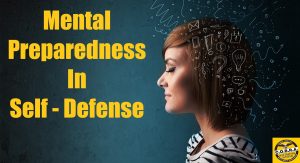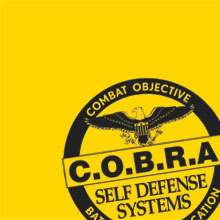
Mental preparedness is a crucial aspect of self-defense. But it often goes overlooked. Mentally preparation means cultivating a mindset that empowers you to stay alert, make quick decisions, and respond effectively. Here are some key components of mental preparedness in self-defense:
Situational Awareness: Situational awareness is the foundation of mental preparedness. It involves being fully present and attentive to your surroundings at all times. This allows you to identify potential threats, suspicious activities, or danger cues. It also allows you to take proactive measures and avoid risky situations whenever possible.
Avoidance and Prevention: Mentally prepared individuals prioritize avoidance and prevention over confrontation. They understand that the best way to stay safe is by steering clear of dangerous situations whenever feasible. This might involve taking a different route, avoiding poorly-lit areas, or trusting their intuition when something feels off.
Managing Fear and Stress: In high-pressure situations, fear and stress can cloud your judgment, hindering your ability to respond effectively. Mental preparedness involves recognizing and managing these emotions. Breathing techniques and mental rehearsal can help you stay calm and focused, allowing you to think clearly and take appropriate action.
Adapting to Changing Circumstances: Mental flexibility is key in self-defense. Situations can escalate rapidly, and what was initially a non-threatening encounter might quickly become dangerous. Mentally prepared individuals adapt to changing circumstances and adjust their responses, ensuring they remain in control of the situation.
Confidence and Assertiveness: Having confidence in one’s abilities and being assertive can deter potential attackers. Predators often target individuals they perceive as vulnerable or easy targets. Projecting confidence and assertiveness through body language and communication signals that you are not an soft target.
Understanding Legal and Ethical Implications: Mental preparedness also includes understanding the legal and ethical implications of using force. It’s essential to be aware of self-defense laws in your jurisdiction, knowing when and how to use force proportional to the threat.
Continuous Training and Practice: Mental preparedness is not a one-time achievement but an ongoing process. Regular self-defense training and practice help build muscle memory and reinforce mental preparedness skills. The more you train, the more natural and instinctive your responses become.
Post-Incident Preparedness: Being mentally prepared also extends to the aftermath of a self-defense encounter. Individuals should be ready to handle the psychological impact of defending themselves. They should seek support if needed and understand that seeking help is not a sign of weakness.
In conclusion, mental preparedness is a critical aspect of self-defense, allowing individuals to stay aware, avoid dangerous situations, and respond effectively in times of crisis. By combining mental preparedness with physical self-defense techniques, individuals can significantly enhance their ability to protect themselves and others when necessary.

